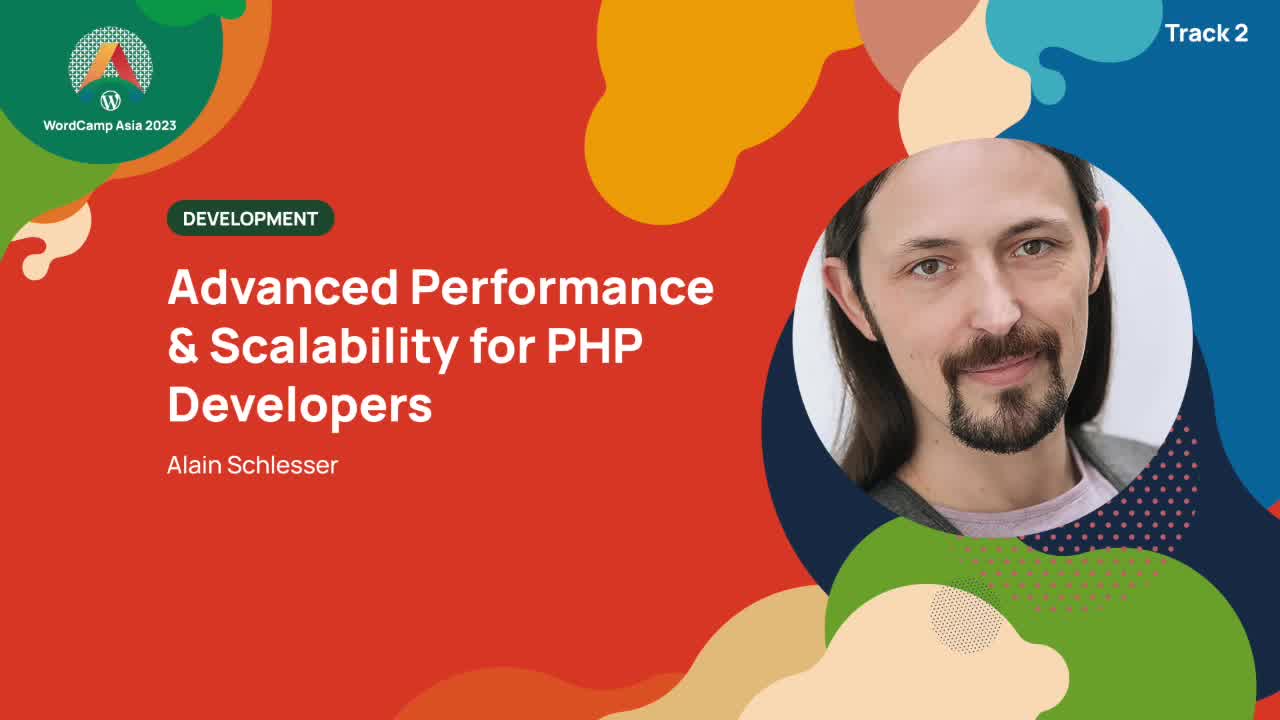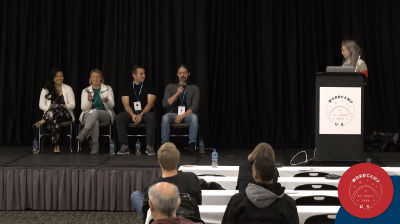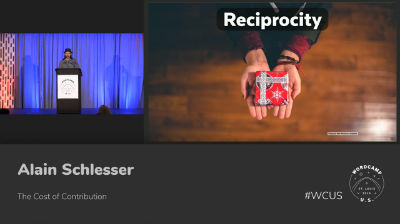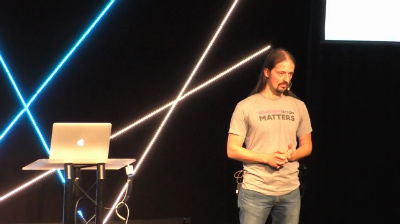Speakers: Alain Schlesser
-

Redefining Code Quality: A Journey Towards Bug-Free Development
WordCamp Asia 2024Speaker: Alain SchlesserApril 9, 2024 — In the constantly evolving landscape of software development, the quest for bug-free code remains a pinnacle challenge for even the most seasoned developers.
This talk aims to transform the way we approach this challenge, not just as a technical hurdle, but as an opportunity to elevate the entire coding process. In this session, we delve into the core principle that most bugs are born from unchecked assumptions. By identifying and questioning these assumptions, we can implement a proactive strategy to prevent bugs before they occur. This talk will guide attendees through effective methodologies to critically analyze their code, fostering a deeper understanding of how assumptions can lead to errors and how to mitigate them.We will explore several key areas:
– The Psychology of Assumptions in Coding: Understanding how easy it is to make assumptions and how they can lead to bugs.
– Practical Techniques for Assumption-Proofing Your Code: Implementing strategies such as rigorous type-checking, automated testing, and peer code reviews to safeguard against bugs.
– Real-World Examples: Analyzing case studies where assumption-led bugs caused major issues and how they were resolved.
– Transforming Coding Philosophy: Shifting from a reactive to a proactive mindset in coding, emphasizing prevention overcorrection.
– Attendees will leave with not just an understanding of common pitfalls in coding but also armed with practical tools and strategies to enhance their coding practices. This talk is ideal for developers, team leads, and anyone passionate about elevating the quality of software development through mindful and strategic coding practices. -

Advanced performance and scalability for PHP developers
WordCamp Asia 2023Speaker: Alain SchlesserOctober 13, 2023 — This talk examines what performance and scalability mean from a server-side development perspective and how to optimize for this environment.
It covers basic mechanisms like profiling, deferred processing and caching first.
Then go deeper into code that simply needs to run faster or in a more scalable way, including topics such as loop optimization, static data, opcaches and other concepts.
-

Alain Schlesser: We need to do better (really!)
WordCamp Europe 2022Speaker: Alain SchlesserJune 24, 2022 — The Open Web, as impactful as it is for our society, is currently in danger and has been for while now.
There is a constant pressure from walled gardens and app stores to monopolize on information, at the detriment of all but a few. Nothing new on that front, right? We all know by now how important the Open Web is and that we need to safeguard it, especially in the WordPress community.
Yet here we are, still keeping on doing the things that hurt the Open Web, and supporting the platforms that endanger it.
In this talk, we’ll look past the bare minimums of accessibility and performance to discuss how UX and monetization relate to each other, and how an healthy Open Web might need to look for alternative business models.
-

Alain Schlesser: Embracing Gutenberg in Existing Code
WordCamp Seattle 2018Speaker: Alain SchlesserDecember 19, 2019 — Gutenberg is a major change to how you will develop software for WordPress. It starts with the WordPress editor but is planned to slowly take over the entire admin interface.
If you already have existing plugin or theme code that you need to maintain and make ready for the upcoming Gutenberg update, you will probably face some architectural design challenges.
This talk will first provide an overview of the general concepts that govern development in the Gutenberg era, and then discuss the different tricks & techniques you can use to gradually move your existing code from here to there, in a clean transition.
-

Alain Schlesser: AMP mit WordPress nutzen
WordCamp Düsseldorf 2019Speaker: Alain SchlesserNovember 30, 2019 — AMP mit WordPress nutzen
AMP ist ein Open-Source-HTML-Framework, das eine einfache Möglichkeit bietet, Webseiten zu erstellen, die schnell laden, butterweich scrollen und vor allem das Benutzererlebnis an erste Stelle setzen.
In diesem Talk wird Alain zuerst in groben Zügen erläutern, was AMP genau ist (und was es nicht ist), welche Ziele es verfolgt, und warum man es nutzen würde.
Danach wird er mehr in Detail gehen und vorführen wie man AMP als Entwickler in einem WordPress-Projekt nutzen kann.
-

Rich Tabor, Helen Hou-Sandi, Carie Fisher, Alain Schlesser: The Web We Want
WordCamp US 2019Speakers: Rich Tabor, Helen Hou-Sandí, Carie Fisher, Alain SchlesserNovember 13, 2019 — If you build websites, you inevitably run into problems. Maybe there’s no way to achieve an aspect of your design using CSS. Or maybe there’s a device feature you really wish you could tap into using JavaScript. Or perhaps the in-browser DevTools don’t give you a key insight you need to do your job. We want to know your pain.
-

Alain Schlesser: The Cost of Contribution
WordCamp US 2019Speaker: Alain SchlesserNovember 13, 2019 — Joining such a welcoming and inspiring community as is the WordPress project can be exhilarating and makes people want to contribute their part to join the movement and strengthen their feeling of belonging.
The initial enthusiasm can easily lead to contributors slowly spiraling into overcommitment and a feeling of obligation and responsibility towards the project. There’s a cost attached to anything we do, even when we’re talking about unpaid volunteer work done in the spare time. And that cost will be paid in some way, no matter what.
We need to more openly talk about the adverse effects of doing open source contributions in an unsustainable way, destigmatize the money topic when it comes to “”free”” software and directly address immediate issues of frustration and burn-out as they surface.
Let’s all have our fellow contributors’ backs, and make sure we’re all in it for the long run!
-

Alain Schlesser: Building a Realtime Status Page using the Combined Power of Gutenberg and Firebase
WordCamp Brighton 2019Speaker: Alain SchlesserOctober 29, 2019 — Modern infrastructure technologies like serverless computing and real-time databases offer a huge potential for new and improved online user experiences.
In this session, we’ll go through a practical use case to find out how we can harness their power in the context of WordPress.
We’ll build a Gutenberg block that shows status updates, to be incorporated into a status page. We’ll use serverless computing to allow adding status updates via a Slack command, and we’ll use a real-time database so that all visitors receive these updates in real-time without any impact on our WordPress server.
-

Panel: The Future of WordPress
WordCamp Brighton 2018Speakers: Alain Schlesser, Mika Epstein, Tammie Lister, David Lockie, Ana SilvaMarch 27, 2019 — Four key members of the WordPress community discuss what the future of WordPress holds – a panel discussion led by Ana Silva.
-

Alain Schlesser: Design Patterns through Practical Examples
WordCamp Porto 2018Speaker: Alain SchlesserFebruary 1, 2019 — Design Patterns in software engineering are a huge help for developers, providing a common, shared vocabulary across languages and platforms that facilitates communication and reasoning. Due to their very nature, they are rather abstract and difficult to properly assimilate and apply in a practical context. This session will discuss the construction of a real WordPress plugin while using several of the more common Design Patterns to demonstrate their real-world usage and highlight the benefits they provide.
